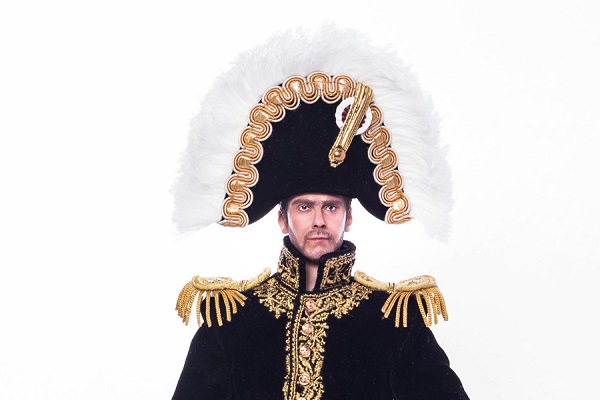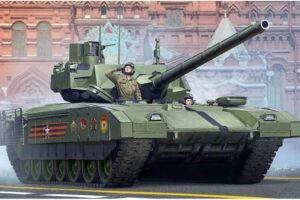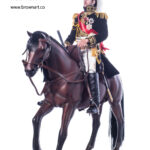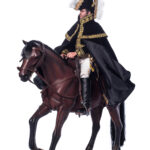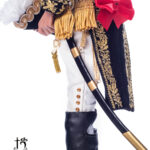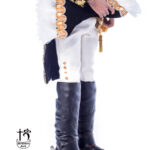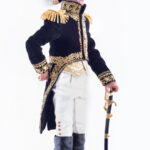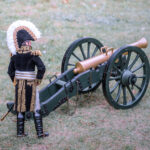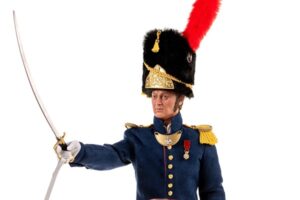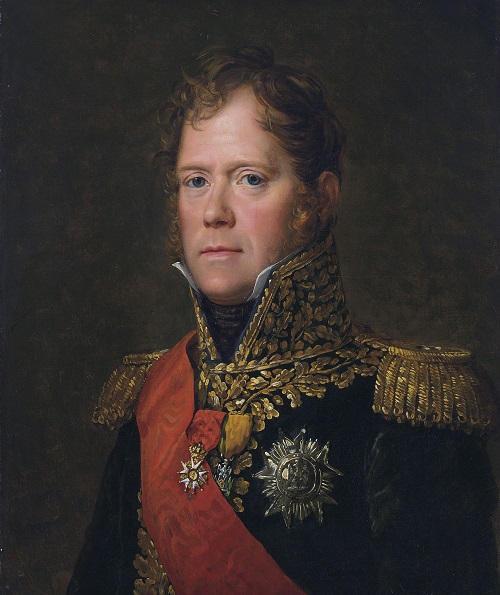
Michel Ney, 1st Duke of Elchingen, 1st Prince of the Moskva (pronounced [miʃɛl nɛ]; 10 January 1769 – 7 December 1815) was a French military commander and Marshal of the Empire who fought in the French Revolutionary Wars and the Napoleonic Wars.
The son of a cooper from Saarlouis, Ney worked as a civil servant until 1787 when he enlisted in a cavalry regiment, right before the outbreak of French Revolution. Distinguishing himself as a cavalry officer in the War of the First Coalition, he quickly rose through the ranks and, by the Battle of Hohenlinden (1800), he had been promoted to divisional general. On Napoleon’s proclamation of the French Empire, Ney was named one of the original 18 Marshals of the Empire. He played an instrumental role during Napoleon’s subsequent campaigns, seeing action at Elchingen (1805), Jena (1806) and Eylau (1807). Ney commanded the French rearguard during the disastrous invasion of Russia, for which he was lauded “the bravest of the brave” by the emperor.
After Napoleon’s defeat by the Sixth Coalition in 1814, Ney pressured the emperor to abdicate and pledged his allegiance to the restored Bourbon monarchy. He rejoined Napoleon during the Hundred Days but met defeat at the Battle of Waterloo (1815), after which he was charged with treason by the restored monarchy and executed by firing squad.
It’s worth noting that some historians insist that Ney wasn’t really executed, but went to the United States and lived incognito.
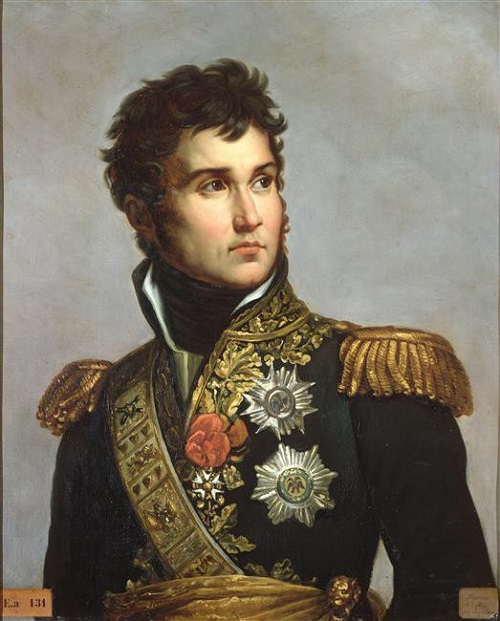
Jean Lannes, 1st Duke of Montebello, Prince of Siewierz (10 April 1769 – 31 May 1809), was a French military commander and a Marshal of the Empire who served during both the French Revolutionary and Napoleonic Wars.
He was one of Napoleon’s most daring and talented generals, and is regarded by many as one of history’s greatest military commanders. Napoleon once commented on Lannes: “I found him a pygmy and left him a giant”. A personal friend of the emperor, he was allowed to address him with the familiar tu, as opposed to the formal vous.

